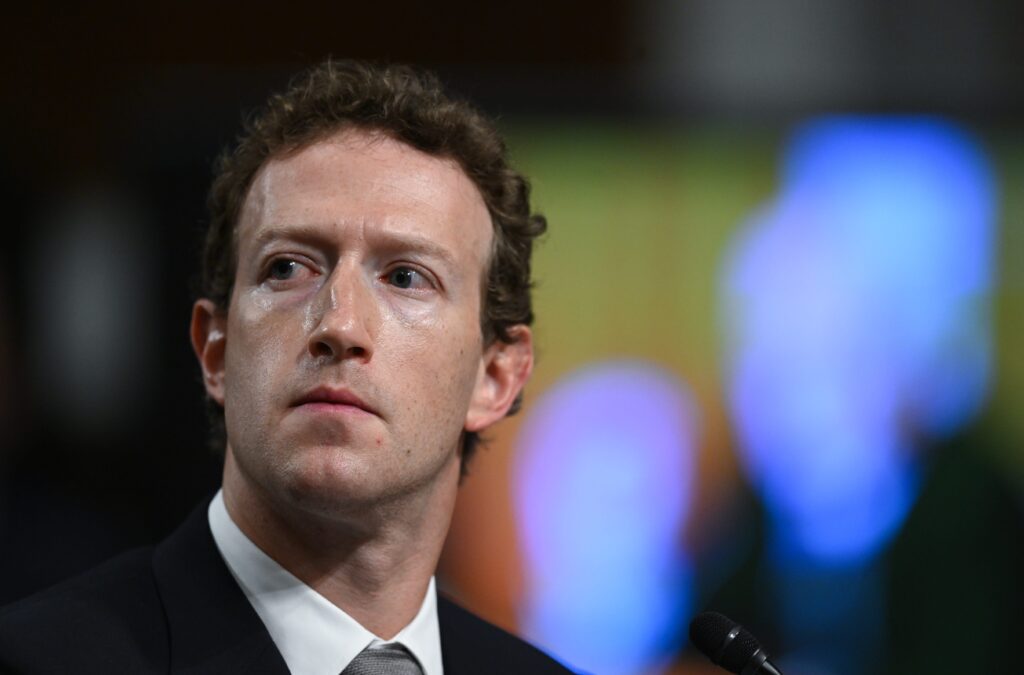- Mark Zuckerberg is betting big on AI — no matter the cost.
- Meta plans to increase spending to invest "aggressively" in "AI research."
- Investors balked at the costs, sending Meta shares tumbling in after-hours trading.
Not everyone is on board with Mark Zuckerberg's AI enthusiasm.
Meta shares took a post-earnings battering in after-hours trading despite reporting better-than-expected revenues as investors balked at its AI spending plans.
On a conference call with analysts, Zuckerberg said he'd become "more ambitious and optimistic on AI" following the recent release of Meta's Llama 3 model and planned to "invest significantly more over the coming years."
Meta increased its estimate of capital expenses as the company invests "aggressively" in "AI research."
Costs are expected to be about $5 billion more than the original estimate of between $35 billion and $40 billion, largely due to AI investments.
Zuckerberg's attempts to reassure investors that there were "several ways" generative AI could make money appeared to fall on deaf ears as shares tumbled as much as 15% in after-hours trading.
That slide shows that investors' tolerance for huge AI spending without clear revenue gains might be beginning to wane.
Fading AI hype
Big Tech companies have reaped the benefit of investor enthusiasm around AI for the past two years.
Meta, Google, and Microsoft are among those pouring resources into development and rapidly releasing products.
Meta has launched several splashy products, including Llama 3, which outperformed many of its competitors except OpenAI GPT-4. Zuckerberg's also been praised for some of his strategies around Meta's AI development, including the decision to open-source models and stockpile GPUs.
While Meta's AI products, including Llama 3, have been generally well received, the company is not selling any version of its newest AI model, which is largely open source.
But while investors seemed willing to overlook spending concerns at the height of the AI boom in exchange for flashy product promises, the response to Zuckerberg's lavish spending shows this enthusiasm has its limits.
On the call, Zuckerberg warned investors: "Building the leading AI will also be a larger undertaking than the other experiences we've added to our apps, and this is likely going to take several years on the upside once our new AI services reach scale."
Metaverse memories
Meta also has an image problem.
Despite years of investment in AI, the Facebook owner was not seen as an AI leader in the same way as Google, nor has it been able to control the post-ChatGPT narrative as successfully as Microsoft.
Just months before OpenAI first launched ChatGPT in late 2022, Meta suffered an embarrassing setback after releasing its own AI chatbot called BlenderBot. The bot proved to be obsessed with conspiracy theories, prompting users to call it "incompetent."
Meta has since solidified its AI reputation, with later releases praised by developers. Zuckerberg's newest AI model even received a nod of approval from old rival Elon Musk.
However, investors may be wary of Zuckerberg's tendency to jump the gun on a technology he's excited about.
It's not the first time he's announced huge spending for a new passion project — Meta's heavy metaverse spending and subsequent stock slide are unlikely to be far from analysts' minds.
Meta did not immediately respond to a request for comment from Business Insider, made outside normal working hours.
